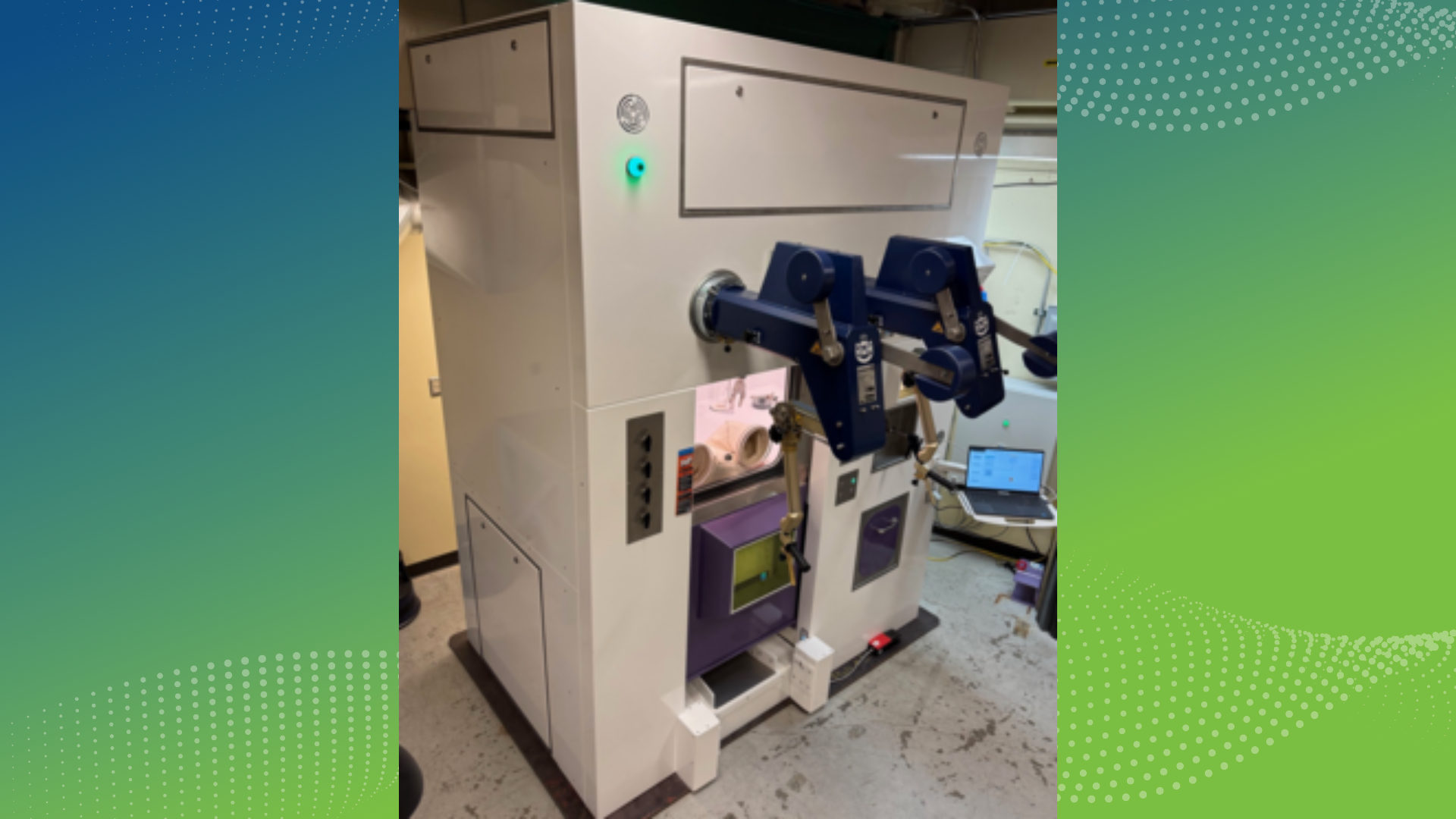University of Washington Enhances Isotope Production Capacity with New Hot Cell and Target Transfer System

The Scanditronix MC50 cyclotron at UWMCF is one of the few medium-energy cyclotrons in the U.S. capable of delivering proton, deuteron, and alpha beams.
In a significant advancement for domestic production of isotopes, the Department of Energy Isotope Program (DOE IP) has increased the availability of popular theranostic isotopes such as terbium-155, rhenium-186, and tin-117m, through upgrades to facilities.
In March 2025, the University of Washington Medical Cyclotron Facility (UWMCF), a DOE IP University Isotope Network partner site, completed work on a major expansion of isotopic infrastructure with the installation of a new hot cell and solid target transfer system. This new system includes a vacuum-driven transfer line that securely delivers irradiated targets from the cyclotron to the new hot cell for immediate processing.
This fully-sealed approach prevents airborne contamination and supports efficient isolation and purification of desired isotopes. The UWMCF's cyclotron's ability to deliver proton, deuteron, and alpha beams makes it one of the few cyclotrons in the U.S. capable of producing these isotopes via high-purity, alternative production pathways.
The DOE IP is supporting UWMCF's efforts in collaboration with other isotope production sites, including DOE/NNSA National Laboratories and DOE IP's University Isotope Network partner sites, for scalable production methods to establish reliable domestic supplies of critical isotopes that are currently in limited supply and have strong potential for both research and clinical applications.




